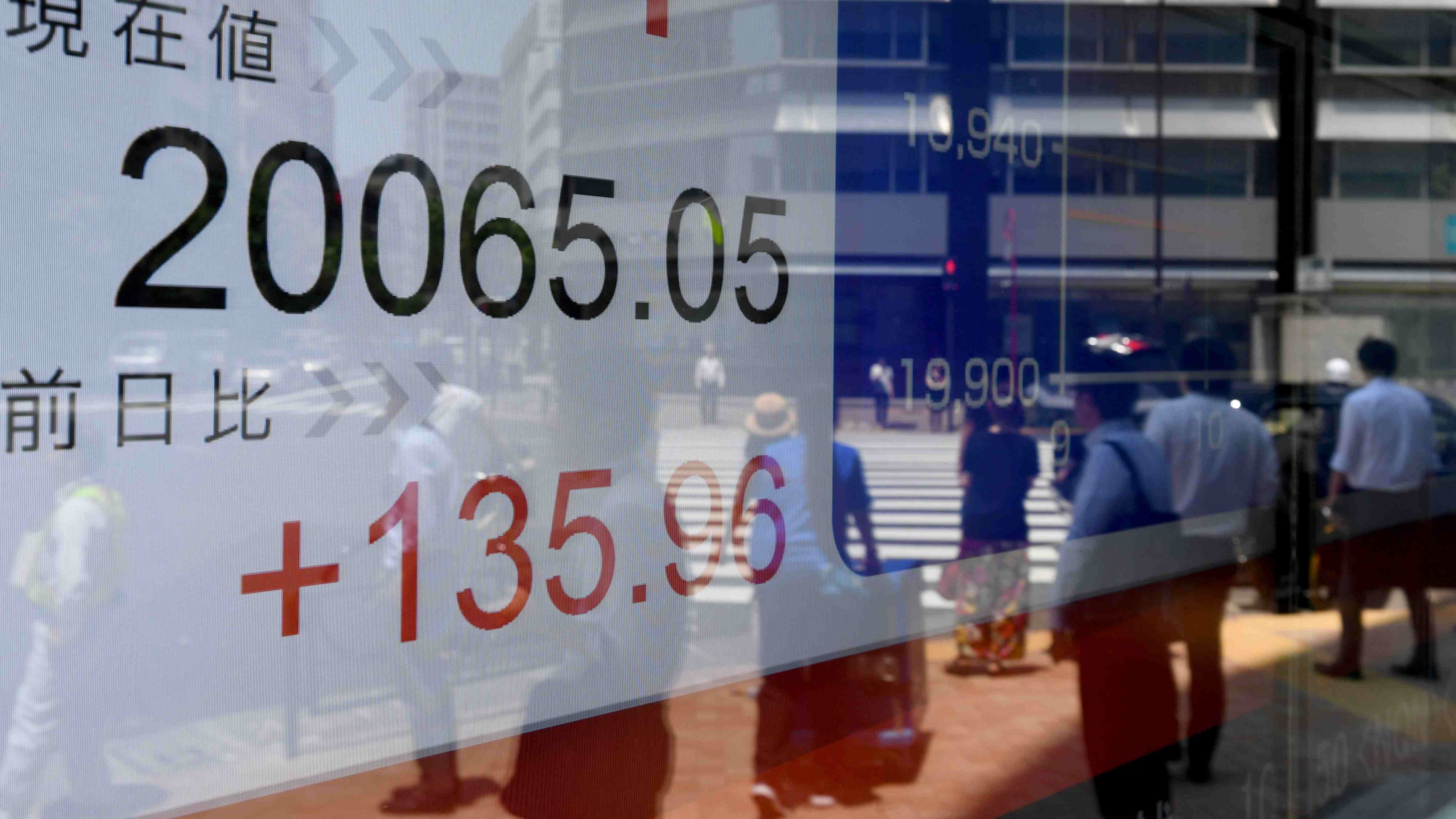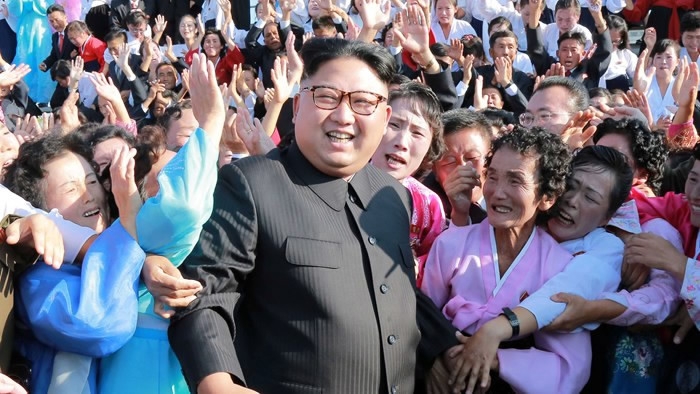
Business
18:22, 12-Sep-2017
Asia shares hit 10-year high as DPRK fears subside
CGTN

Asian shares hit a 10-year peak on Tuesday with investors breathing a sigh of
relief as Korean Peninsula fears eased and the worst-case scenario from
Hurricane Irma looked to have been avoided.
MSCI's broadest index of Asia-Pacific shares outside Japan gained 0.2 percent
to its highest level since late 2007. Japan's Nikkei added 1.0 percent.
On Wall Street on Monday, US S&P 500 Index surged
over one percent to a record high close of 2,488.
over one percent to a record high close of 2,488.
The MSCI All Country World Index (ACWI), a gauge of world
stock markets covering 47 exchanges, also hit a new record high
having made its biggest gains in about two months.
Insurers were among the
biggest winners, with MSCI World's insurer index rising 1.5 percent on
Monday, as insured property losses from Hurricane Irma are expected to
be smaller than initially forecast.
Adding to an uptick in risk
appetite was relief that the DPRK did not test-fire missiles or conduct
nuclear weapon tests over the weekend as some had feared.
The United
Nations Security Council unanimously stepped up sanctions against the DPRK on Monday over the country's sixth and most powerful nuclear test on September 3,
imposing a ban on the country's textile exports and capping imports of crude
oil.

Fears that the DPRK would mark its founding day on September 9 with a missile launch were unfounded, with Asian markets breathing a sigh of relief on Monday and Tuesday. /AFP Photo
Fears that the DPRK would mark its founding day on September 9 with a missile launch were unfounded, with Asian markets breathing a sigh of relief on Monday and Tuesday. /AFP Photo
"The measures did not include an outright ban on oil
supplies to the regime, so the threat of an immediate military confrontation appears to have eased for now," said Mutsumi Kagawa, chief global strategist at Rakuten Securities.
supplies to the regime, so the threat of an immediate military confrontation appears to have eased for now," said Mutsumi Kagawa, chief global strategist at Rakuten Securities.
Unwinding safe-haven buying
Safe-haven assets such as US Treasuries and gold gave back most of their
recent gains.
The 10-year US Treasuries yield jumped to 2.129
percent from 2.061 percent, the biggest rise in a month and a
half.
"The markets have been alternating between optimism and pessimism.
If US bond markets drop further today, it's quite unusual to see them
falling for two days in a row so we could say the latest cycle of pessimism,
which has lasted two months, may be coming to an end," said Daisuke Uno,
chief strategist at Sumitomo Mitsui Bank Corp.
The Swiss franc slipped to 0.9565 franc
per dollar while gold dropped to 1,325 US dollars per ounce, compared to Friday's
one-year peak of 1,357.4 US dollars.
Since the DPRK's nuclear test on September 3, the
franc is now up just 1.0 percent, just slightly above 0.9 percent gains
in MSCI ACWI during the same period. Gold has erased all its gains since
then.

AFP Photo
AFP Photo
The Chinese yuan stepped back further from
Friday's 21-month high versus the dollar to 6.5356 per dollar, after China's central bank on Monday scrapped two measures that were put in place to support the yuan when it was under significant selling pressure.
Friday's 21-month high versus the dollar to 6.5356 per dollar, after China's central bank on Monday scrapped two measures that were put in place to support the yuan when it was under significant selling pressure.
Chinese stocks closed mixed on Tuesday, with the benchmark Shanghai Composite
Index up 0.09 percent at 3,379.49 points.
The Shenzhen Component Index
closed 0.09 percent lower at 11,043.61 points.
Source(s): Reuters
,Xinhua News Agency

SITEMAP
Copyright © 2018 CGTN. Beijing ICP prepared NO.16065310-3
Copyright © 2018 CGTN. Beijing ICP prepared NO.16065310-3